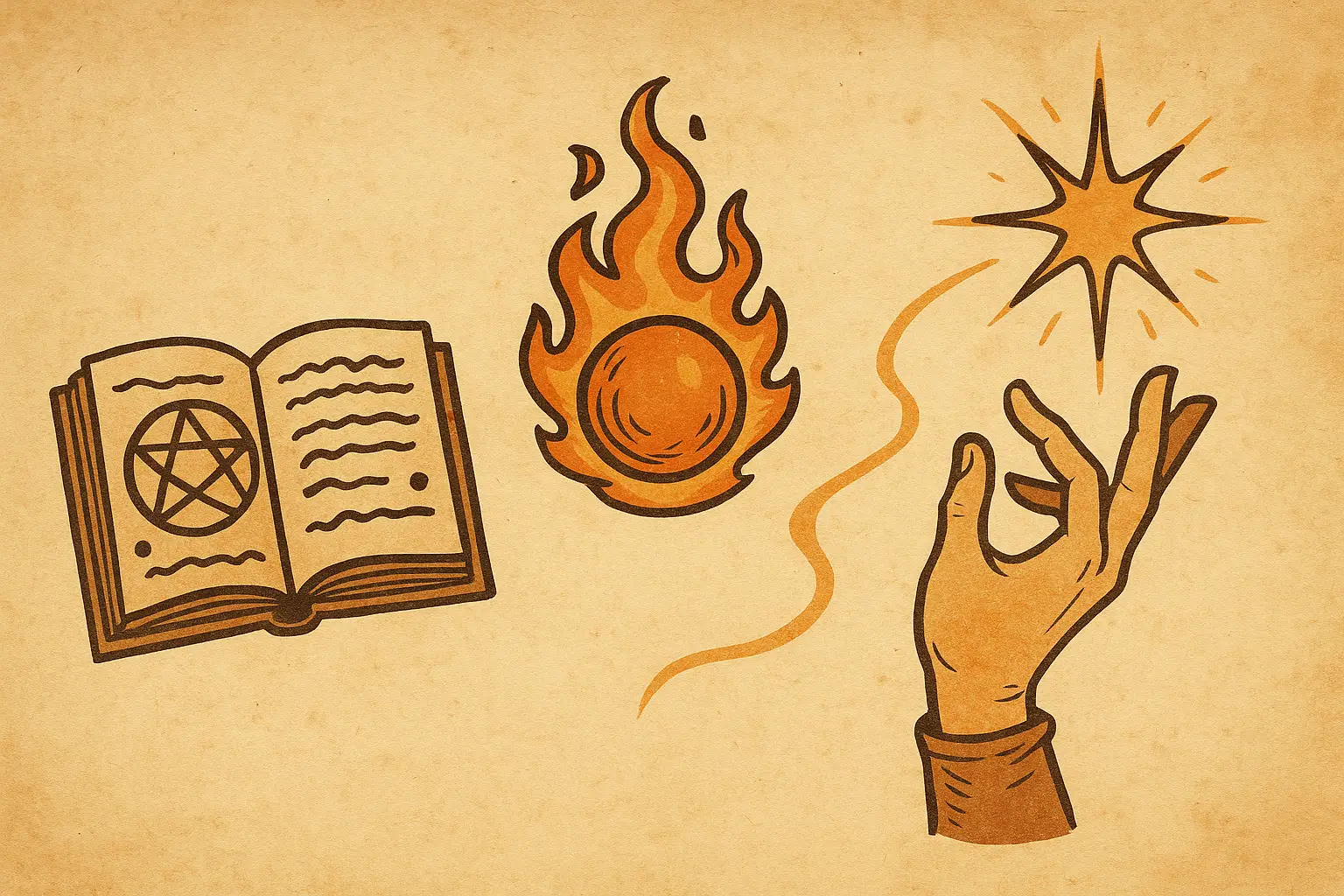How critical failures can spark storytelling gold
There’s a certain silence that falls over the table when it happens.
The dice clatter, the tension rises—and there it is.
A big, fat 1.
Your rogue was mid-backflip through a stained-glass window.
Your bard was trying to sweet-talk the duke’s daughter.
Your barbarian just tried to climb a horse.
And now?
Disaster.
The natural instinct is to groan, curse your luck, and assume the scene is dead—because obviously, you’ve failed.
But here’s the secret the best tables know:
Nat 1s aren’t just setbacks. They’re opportunities.
In fact, some of the most iconic, hilarious, and story-rich moments in any campaign are born from the unlikeliest number on the die.
Today on RPGInquisitor, we’re unpacking why critical failures don’t have to mean “nothing happens” or “your plan is ruined”—they can be the beginning of the scene that defines your character.
⚠️ First, Let’s Define “Nat 1”
In most d20-based systems like D&D 5e, a natural 1 on a d20 means automatic failure on an attack roll, and sometimes on skill checks if the GM is feeling spicy.
It’s not always codified for non-combat rolls, but at many tables, rolling a 1 on anything feels like the universe laughing at you.
But that doesn’t mean it has to be boring—or punished.
💥 The Problem with “You Fail. Next.”
The most boring way to resolve a nat 1 is:
“You fail. Moving on.”
That’s mechanically correct, but narratively hollow.
The character attempted something bold or important, and the result is… silence?
Here’s what’s lost when we skip past failure:
- Character expression: How do they react?
- Worldbuilding: What goes wrong, and why?
- Tone-setting: Does this moment become funny, tragic, or terrifying?
- Player agency: A failed roll is still a player choice—it should carry weight.
A nat 1 should be a pivot, not a stop sign.
🎭 How Nat 1s Enhance Story
1. They Reveal Who the Character Really Is
Anyone can look cool when they succeed.
But how does your paladin respond when they fumble their oath-sworn smite and hit a rock?
- Do they blame the sword?
- Do they make a speech anyway?
- Do they quietly pick moss out of their armor and pretend it didn’t happen?
These moments humanize characters. They turn them into people—not just stat blocks.
2. They Invite the Unexpected
Failure opens the door to complications.
- The pickpocket is caught—but by someone who wants a favor, not revenge.
- The spell misfires—but causes an unintentional illusion that spooks the real villain.
- The lie fails—but the duke’s daughter finds your clumsiness charming.
Failures move the story sideways, and that’s often where the magic is.
3. They Spark Table-Wide Engagement
Nothing gets the table howling like a ridiculous nat 1.
- “You tried to leap the pit… and landed in it.”
- “You meant to seduce the guard… and insulted their mother.”
- “You threw your dagger… and hit your own shoe.”
These are the stories players remember. They become in-jokes, flashbacks, and running gags.
“Hey, remember when your wizard tried to fly and instead summoned bees?”
That’s gold.
4. They Give GMs Narrative Leverage
A smart GM can use nat 1s to:
- Reveal hidden danger
- Introduce strange consequences
- Shift the stakes of a scene
The rogue’s lockpick breaks—but it leaves a clue inside.
The barbarian misses a swing—but notices an echo behind the wall.
The persuasion check flops—but the NPC starts talking too much out of awkwardness.
Failure can be a story tool, not just a brick wall.
🧰 How to Handle Nat 1s as a GM
✔️ DO:
- Add a twist, not just a failure.
- Let the result still move the story forward (even if badly).
- Keep the tone consistent with the game (slapstick is great—unless you’re in a gothic horror).
- Ask the player how their character reacts.
❌ DON’T:
- Use nat 1s to punish or humiliate players.
- Stop the scene dead.
- Forget the roll happened entirely.
The goal isn’t to shame—it’s to entertain and enrich.
🧠 Fun Alternatives to “You Fail”
Try these GM prompts when a player rolls a 1:
- “You succeed, but at a cost.”
- “You fail—spectacularly. Describe how.”
- “You think you succeed, but something’s off.”
- “Your failure creates an unintended ripple effect.”
These responses turn the moment into a narrative seed, not a dead end.
🧪 Turning Failure into Fuel (For Players)
As a player, lean into failure:
- Play it big. Make the drama count.
- Make your character aware—or oblivious.
- Let it change you: embarrassment, overcompensation, rethinking plans.
Failure is growth. And growth is gold for roleplaying.
“Ever since that nat 1, he’s been terrified of grappling again. Even hugs.”
That’s storytelling.
🎯 Final Thoughts: Fail Forward, Laugh Louder
The d20 giveth, and the d20 taketh away.
But in between?
It offers moments—weird, ridiculous, painful, glorious moments that define the campaign.
So next time you roll that dreaded 1?
Don’t groan.
Grin.
Because the story just got way more interesting.

